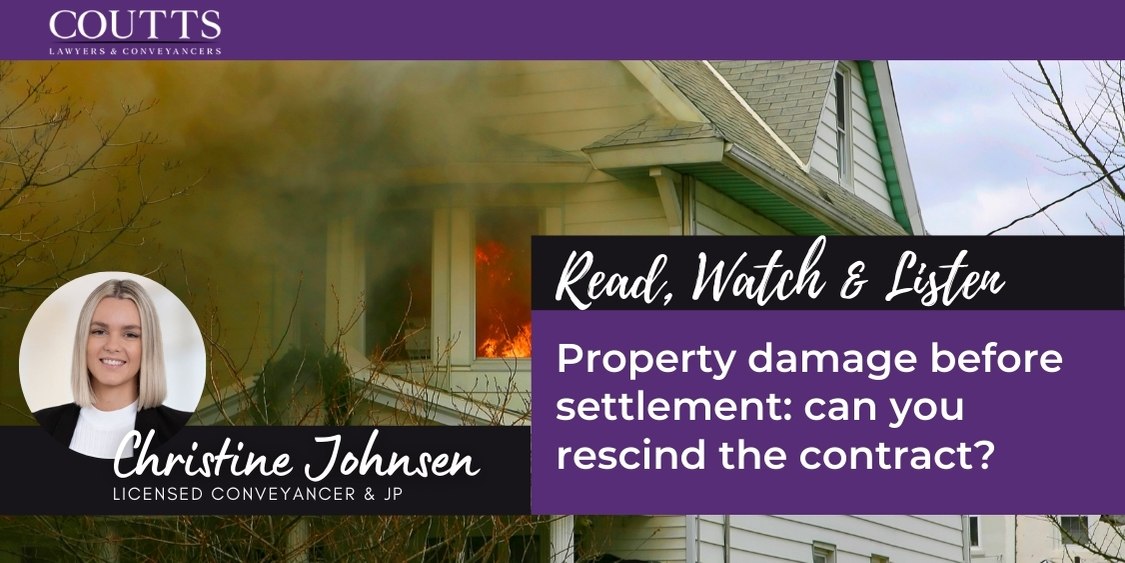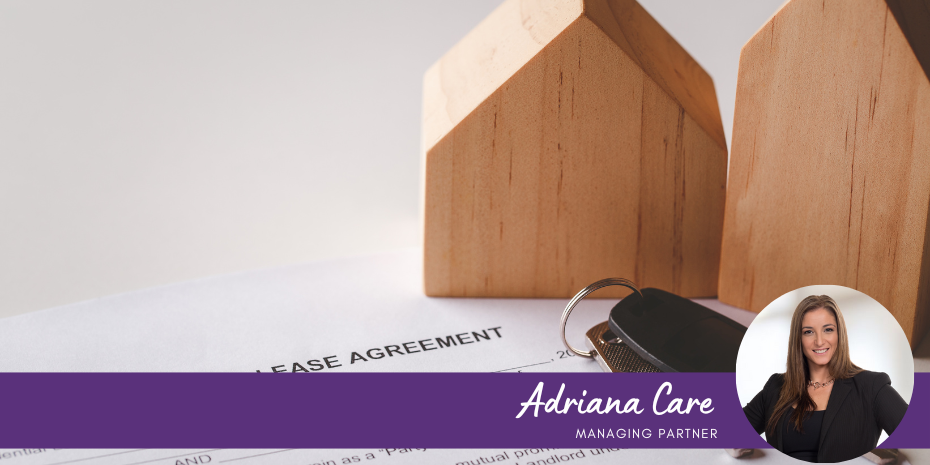Understanding property damage risk for purchasers in NSW
When does the purchaser assume risk of property damage?
In NSW when a purchaser enters into a Contract for Sale unconditionally for a residential property, they accept the property in the state and condition it is in at the date that they enter the Contract, including reasonable fair wear and tear.
The risk in respect of damage to land passes to the purchaser under a Contract for Sale in NSW when one or more of the following occurs:
- the sale is complete; or
- when the purchasers enter into, or is entitled to enter into possession of land, whichever occurs first; or
- when the purchaser is in receipt of income from the land.
Can a purchaser rescind the contract if property damage is found before settlement?
If the property is substantially damaged (which is defined as having rendered the property materially different from that which purchaser agreed to purchase), between the period of unconditional exchange and settlement, the purchaser has a right to rescind the Contract for Sale and have any deposit previously paid returned to them, should they no longer wish to proceed with the purchase.
However, in saying this, the definition applied by the Courts in relation to what is or is not “substantial damage” is reliant on each individual circumstance and takes into consideration many factors.
To give you an example, in the NSW Supreme Court case of Bakhos v Fenner and Anor [2007] NSWSC the property that was being purchased was considerably damaged during a fire. The damage included shattered windows; smoke damage; burnt carpets and sagging ceilings. The purchaser attempted to rescind the Contract and claimed that he was doing so due to the damage caused by the fire.
The Court denied the purchaser had a right to rescind the Contract for Sale and due to his attempts to do so, he had in fact repudiated the Contract for Sale and the vendor was entitled to keep the deposit the purchaser had paid for the property.
The Court determined that the damage did not make the property materially different and took the following, amongst other things, into consideration when making its decision:
- the property being an outdated brick and tile home over 50 years old and showed signs of age;
- the economic significance of the house in regards to the contract price;
- the plans the purchaser had to redevelop the property; and
- the fact the vendor satisfactorily repaired the damage prior to the settlement date.
How to protect yourself against property damage before settlement
The above is why it is vital that a vendor continues to maintain the insurance over the property right up until the date of completion. Conversely, the above is why it is vital that a purchaser conduct a final inspection of the property, prior, but as close as possible to the completion date, in order to protect themselves in case damage does occur prior to completion.
Other remedies if a purchaser finds property damage before settlement
A purchaser’s right of rescission is not the only remedy available to them if they are affected by substantial damage prior to settlement. Should the purchaser wish to proceed towards a settlement, the purchase price may be reduced on settlement by such amount that is just and equitable given the type of damage done to the property.
Notwithstanding the above information, we recommend seeking advice from your legal representative to determine if you are entitled to rescind Contracts and have your deposit returned or get a purchase price reduction, should you be affected in this regard.
ABOUT CHRISTINE JOHNSEN:

Christine is a Licensed Conveyancer and Justice of the Peace at Coutts’ Narellan office. Since joining Coutts Lawyers & Conveyancers in 2013, Christine quickly immersed her interest into property and has since completed studies of Conveyancing Law and Practice at Macquarie University; and is accredited with the Australian Institute of Conveyancers NSW.
For further information please don’t hesitate to contact:
Christine Johnsen
Licensed Conveyancer & JP
info@couttslegal.com.au
1300 268 887
CONTACT COUTTS LAWYERS & CONVEYANCERS TODAY.
This blog is merely general and non-specific information on the subject matter and is not and should not be considered or relied on as legal advice. Coutts is not responsible for any cost, expense, loss or liability whatsoever in relation to this blog, including all or any reliance on this blog or use or application of this blog by you.



